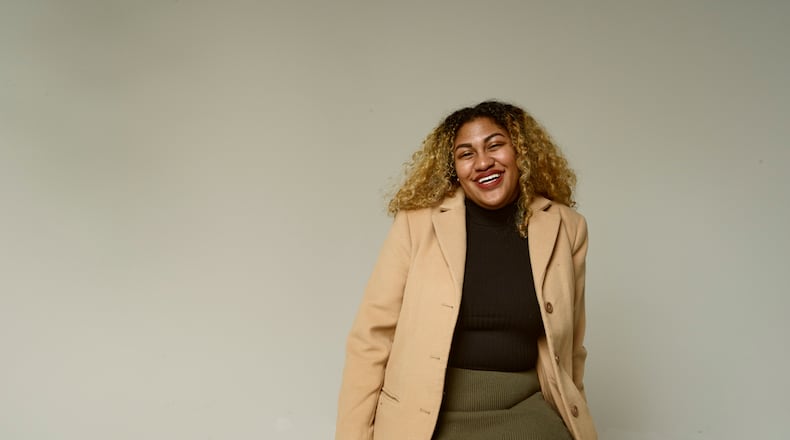I saw patients that I got to know on a first-name basis. I knew how to access their port, or the medication that worked best for their pain, but I also discovered that they didn’t have a primary care provider after discharge or a case manager to assist them with resources. I saw preventable health conditions in patients that I encountered frequently, and noticed that most of them were not thoroughly educated on the disease process. What good is it to stabilize a patient when I can work to prevent the issue in the first place?
I have always been a firm believer in education, thanks to both of my parents. My father finished his Bachelor’s degree from Alabama A&M in engineering while he was newly married and had two young children. Afterwards, he and my mother moved our family to Texas for his career right after graduating and has never stopped pursuing new things to learn. I have been so inspired watching him use his degree in different areas acquiring new knowledge that he applies to his personal life as well. He always pushed my sister and I to do our best, whatever that looked like. My parents divorced when I was in grade school as the US economy collapsed, but they both remained in my life. My younger sister and I spent most of our time with our mother who immigrated from South Africa near the end of the apartheid era. She worked hard to support us away from any familial support system. Thanks to her, we were always involved in youth programs and community outreach to help foster our development. In high school, we began attending a majority African-American church. My father was involved in youth mentorship and helped us get involved. Our church believed in practical ministry, so we distributed food baskets door to door and held children’s programs in the low-income neighborhoods that surrounded the building acting as the hands and feet of Jesus. Those few years ignited my desire to remain in the community, no matter where my career took me.
I left the trauma center in November 2021 and transitioned to a smaller community hospital as a staff nurse in the ER. I became an Adjunct Professor in August 2022 in the Division of Nursing for new nursing students at Kettering College in addition to working full time. Not only did we work on clinical skills such as assessments, documentation, and vital signs, but I assigned them “patient communication assignments” as well, which required the student to converse with their patient regarding topics ranging from the patient’s career and family to the patient’s thoughts on the healthcare system and their treatment. This allowed the student to understand that they are treating a person, not a condition. I had frequent one-on-one meetings with each student where I was able to learn more about their personal life and give advice. Shy students became confident, stress became manageable, and the students ended the semester with a strong bond to each other (as well as their textbooks). During that semester, I learned that Kettering College received a grant from the Health Resources and Services Administration (HRSA) in September 2022 to begin a Community Health Worker Training Program and was looking for a coordinator. I did research on community health workers (CHW)s as I was not aware of the profession even while working in healthcare. After interviews, I was offered the position as Program and Data Collection Coordinator and began 2 months ago.
West Dayton and Trotwood are designated medically underserved by HRSA. Medically underserved areas (MUAs) identify geographic areas and populations with a lack of access to primary care services. Based on community survey data, economic stability factors are associated with the largest number of health conditions. In addition, Black community members in the region are significantly more negatively impacted in every social determinant of health (SDOH) when compared to white community members. Social determinants of health are the conditions in the environments where people are born, live, learn, work, play, worship, and age that affect a wide range of health, functioning, and quality-of-life outcomes and risks. Individuals must have extra money and the ability to travel to obtain decent health care, despite all of the healthcare locations in the greater Dayton area. And those that don’t have inside knowledge face even more barriers to care.
Community health workers (CHW) are essential to closing the gap in Dayton. They are frontline public health workers who have a close understanding of the community they serve. This trusting relationship enables the worker to serve as a liaison between health and social services and the community to facilitate access to services and improve the quality and cultural competence of service delivery.
The Community Health Worker Certificate Program at Kettering College is working to address the health disparities within Dayton and increasing diversity in the workforce. We are aiming to start a semester-long program in August of 2023 to train individuals to become advocates in West Dayton and Trotwood. Tuition is completely free for the participant, covered by the HRSA grant. There are also funds allotted to provide assistance with technology, transportation, childcare, and other barriers to completing the program. The classes will be held during the evenings at the Kettering Health Dayton campus for easier access. Real-world experience is crucial and will be provided at community-based organizations around the greater Dayton area. This program has the potential to transform lives right here in our city.
We are looking for individuals who want to help serve under-served communities to join the program, and organizations to partner with! For more information, please go to www.kc.edu/chwp.
Johnjé Jasper is an experienced nurse, mentor, educator, and community advocate who currently works at Kettering College.
About the Author
